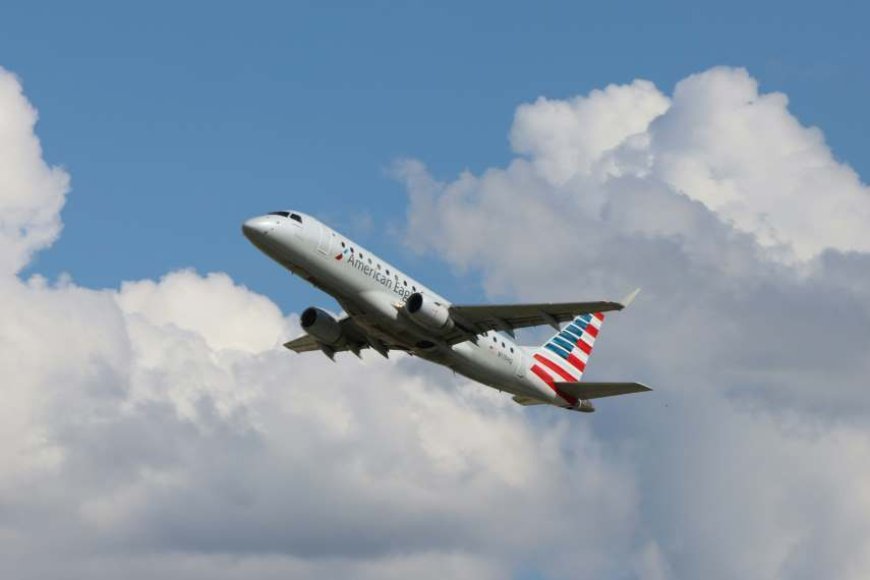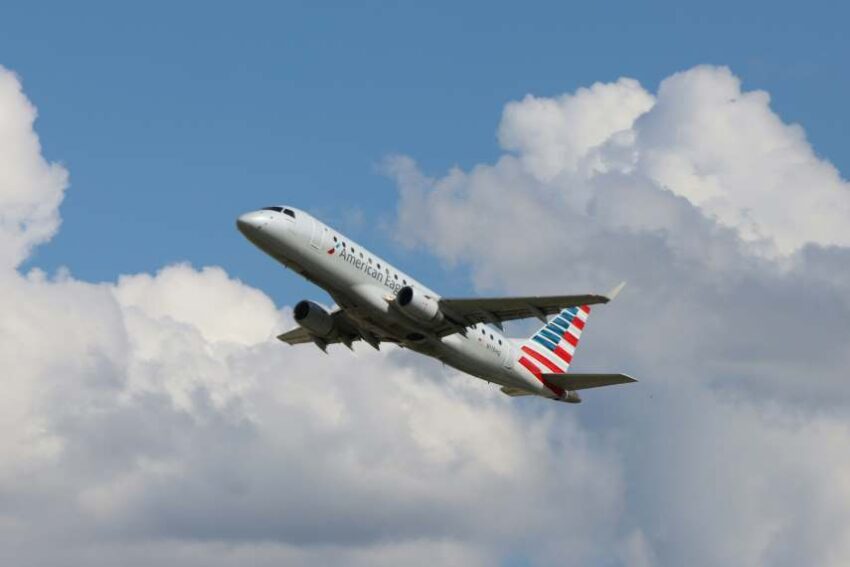American Airlines Faces Major Disability Lawsuit Over Online Check In Failure


Kelsey Brickl, who hails from Illinois, is taking American Airlines to court for $216,000 because of an alleged glitch in online check-in systems for her flight from Paris to Chicago. The case raises important issues of whether the Montreal Convention’s disability accessibility provisions have been violated, since Brickl is stating that the grievance caused undue emotional and physical damage because the system worked against people with disabilities. The case brings to the forefront the concern that air travel for disabled individuals is not only riddled with difficulties, but that airlines have legal obligations under international law to make air travel accessible and adequately accommodate disabled individuals.
After the family had to check in at the airport, Brickl, who suffers from severe mobility, cardiac, and neuromuscular disabilities, stated that the family faced difficulties completing the check-in process. The case against American Airlines also posits that the system’s inability to provide accessible online check-in systems is a violation that is adjudicated as an infringement of American law, as such a system is a constitutional right for disabled individuals.
The Aftermath: Travel Foregone Conclusion – Airline Inconvenience Winds Up In Court
The complaint filed against United Airlines on July 17, 2025, encapsulates the incident with Bitzl on July 22, 2025, where she was denied boarding for a fifth segment due to the check-in systems’ “selective” behavior towards “passenger” frames and ignoring the titles attribute in passenger metadata stored. When her family went to check in for the flight to Chicago, the online check-in system preassigned check-in titles “mister” and “missus” for both Brickl and her son, and the boarding passes, “mr, miss, and kiddo” for the son. The system barred them from completing the check-in as a lockout mechanism due to pre-designated titles. As a result, the family was forced to check in in person at the Paris Charles de Gaulle airport.
The inability to pre-emptively check in caused Brickl to have to push her way through the airport to the check-in kiosk. The friction caused on top of not being able to pre-emptively check in caused her extreme fatigue and disrupted her medical routines. Moreover, her pre-scheduled disability arrangements were at risk of not being provided for. When she reached out to the customer support, she was informed that the online check-in for international flights was unresponsive for some periods, and due to no resources, no workaround was available.
The Legal Arguments: Online Check-In as a Legal Right
The case stresses that online check-in accessibility is particularly important for those needing medical and disability travel planning. American Airlines’ online check-in failure system is alleged to have contravened the Montreal Convention, which regulates international air travel and the rights of passengers. Article 17 of the convention states that there are certain accidents which are compensable and that the airline may be liable for, if there is any boarding, flight, or deplaning linked to disablement, injury, or emotional distress. Her legal representatives assert that the lack of online check-in service constituted a breach of her rights due to a lack of check-in service under the online provisions of the airline’s online services.
Upon her entry to Chicago O’Hare, Brickl further reported issues that added to the online check-in complication for her. In clear violation of federal regulation, her wheelchair was not brought to the aircraft door, but instead sent to baggage claim. As a result of the delay in providing her chair, she was unable to get off the aircraft and suffered a lot of emotional distress. Reportedly, Brickl refused to get off the airplane until her wheelchair was brought to the door, and in so doing, she did not generate a permissive under legal rights regulation to her disability rights.
The Psychological and Physical Consequences of the Incident
The lawsuit describes how the incident distressed Brickl emotionally and incurred physical consequences as well. She has explained how she went through “physical pain, humiliation, emotional trauma, and documented medical decompensation” in the weeks that followed the incident. Lack of access to a wheelchair as a result of her boarding an airplane exacerbated her medical condition, and the emotional burden added to her already fragile health. The lawsuit describes how her routine medical care, which she followed methodically, was disrupted and how that disruption in the routine led her to further deteriorate, which in turn demanded more complex care after the incident.
Brickl’s lawyers allege that the airline not only caused inconvenience to her, but also caused injury through actions that contravened and violated her rights that are protected federally under the Montreal Convention as well as U.S. disability laws. The claim, which seeks damages for medical and emotional injury, has highlighted the increasing need for airlines to incorporate systems, such as online check-in, that meet the accessibility requirements for people with disabilities.
American Airlines’ Response and Industry Implications
American Airlines has not provided further comments about the lawsuit. However, the company has accepted the incident’s occurrence and confirmed that the passenger was assisted or given help at the airport. The airline also apologized to other passengers on the flight for any inconvenience. This lawsuit, on the other hand, could set a critical precedent about the obligations of airlines pertaining to the online check-in systems.
Airlines have long been obligated to accommodate passengers with disabilities, but Brickl’s lawsuit may serve to answer whether a lack of online services, such as online check-in, provides a violation of these obligations. The decision for this case may set a future legal precedent on how airlines provide for disabled passengers in this digital era.
A Historical Overview of Violations of Disability Rights and Continuing Concerns
This case begins with American Airlines’ troubling history of matters related to disability concerns. In October 2024, the United States Department of Transportation (DOT) slapped American Airlines with a hefty $50 million fine for its blatant negligence in the provision of wheelchair services and the assistance to passengers with disabilities from 2019 to 2023. These violations, alongside others, have motivated advocacy groups for persons with disabilities, such as the Paralyzed Veterans of America, which has historically worked to improve the treatment of disabled passengers in the airline industry.
Although American Airlines has tried to improve its services by automating the tagging of wheelchairs and compensating for the batteries and other mobility devices that are not serviced properly, advocates believe that the airline has not gone far enough to help them. American Airlines has not been able to solve the problem of the online check-in system, illustrating that there is a need for stronger oversight, compliance with, and enforcement of disability laws.
The Wider Consequences of Compliance with Disability in Airlines
The Brickl case is situated within the larger discussion of the scope of compliance with disabilities in the airline industry. There is scant case law on what qualifies as a compensable injury for disabled passengers with the airlines settling most Montreal Convention claims out of court. This litigation may resolve the question of accessible check-in technology (“gap”) and its compliance with federal disability law.
Accessibility for all passengers, including those with physical disabilities, poses the greatest challenge as airlines continue to physically and technologically upgrade their systems. The Brickl case may strengthen requirements for accessibility compliance for websites serving physically disabled passengers while establishing broader legal rights for disabled travelers beyond the airline industry.
Conclusion: The Future of Travel for People with Disabilities
The issues raised in the American Airlines case pose fundamental issues on the scope and obligations of the Montreal Convention and American disability law concerning the rights and needs of disabled passengers in the airline travel continuum.
As the litigation develops, it stands to reason that there are critical legal precedents that will be established that will contour the future of air travel access, guaranteeing that airline systems and travel logistics encompassing the flights are optimized for users with disabilities, at every level. The airline industry must carefully consider the measures it puts in place to ensure that every traveler, irrespective of their disabilities, has the right to access specialized services and legal safeguards offered by the industry.
(Source: Kelsey Brickl, American Airlines, Chicago District Court, U.S. Department of Transportation, Paralyzed Veterans of America)
The post American Airlines Faces Major Disability Lawsuit Over Online Check In Failure appeared first on Travel And Tour World.






